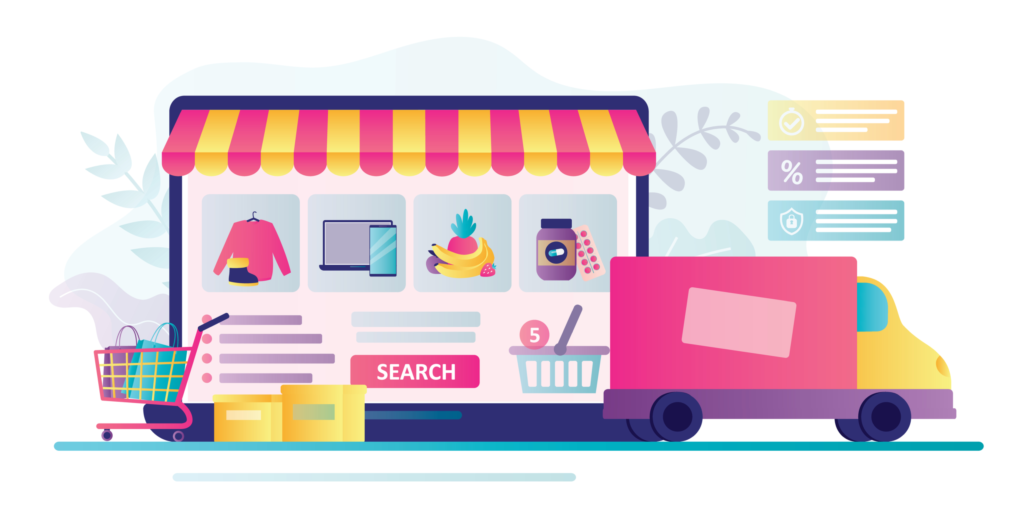
- Products
- Solutions
- Learn
- Partner
- Try Now
It is quite a challenge and indeed takes a lot of effort to build a marketplace. But the real challenge awaits still after that- Growth of the Marketplace.
Understanding what kind of growth to expect in a marketplace is important in order to set realistic expectations. In general, building marketplace businesses takes more time than other online businesses.
Don’t be one of the founders who give up too soon. Be patient. Constantly try new things, but don’t give up.
Here’s how to find the right growth channel for your early-stage marketplace.

Start focusing on customers before launch
Set up a simple landing page on your marketplace to collect email addresses a few months before you actually open up the marketplace.
Tap into existing facebook communities. Join the group and start participating in the discussions. If you manage to attract some interest, direct them to your landing page of your marketplace to sign up for your email list.
You should also think about who the major influencers of your target customers are. Are they active bloggers? Contact them and try to make them early ambassadors of your marketplace.
Existing users to be super engaged with the marketplace
It is very crucial to handhold the initial users of your marketplace. One-to-one interactions with initial users will not only boost the user’s confidence in the marketplace but will hand out first-hand feedback to you. The feedback will help you identify the loopholes of the marketplace and ensure a smooth user experience for future users.

Has your supply brought your demand to your marketplace?
For a marketplace, it is a clever idea to have your supply bring in demand for you. Suppliers/ experts are bound to have a customer base before they enroll in your marketplace. As marketplace owners, you should focus on their existing user base to come on board as they are familiar with the expert and will not have trust issues with the platform.
Udemy for instance gives 70% sale to its expert’s on-course sales. But the experts get to keep 85% when they promote their course themselves.
Help sellers look professional!

The more professional the seller comes across, the more likely the buyer will purchase from them. You might want to consider creating “How to Guides” to help sellers present themselves well on the marketplace.
From professional photographs to giving detailed descriptions about about then, everything counts when a user is seeking consultation on a marketplace.
Take percentage
Although this won’t change very often it is important for a number of reasons. It is advisable to keep a higher percentage take (especially on the first transaction) means you can scale faster being able to spend more to acquire customers.
Be careful though not to make this too high as increasing your take may incentivize buyers and sellers to transact outside of the marketplace.
Marketplace Growing Too Rapidly!
It may actually kill a marketplace business. “Growing too early amplifies flaws in the business model, making them harder to fix.
Figuring out the optimal revenue stream that extracts enough value—but not too
much—from your transactions can only be done through trial and error. If you scale too fast without finding this optimal model, it can lead to a breakdown of your marketplace.
Generate your community

Having a strong network or community is beneficial to a great extent. It is a great way to get closer to the people, to generate activity, to exchange knowledge. Try to generate and regulate your community by hosting meetup events or by creating a community/ forums on social media and promoting your marketplace.
Don’t combine your product launch with a marketing launch. Instead, do your product launch first.
While there are some benefits to a big marketing launch, it can result in more problems than upside, especially if you have not yet validated your concept thoroughly. Your positioning might be off, and you end up spending time and money acquiring a large number of the wrong customers.
What this means is that your marketplace should be open to the public for some time before you start promoting it widely. A good way to do a product launch is to open up your marketplace platform, but only tell a small group of people about it. You should pick the most enthusiastic early adopters from your mailing list. Like with your first providers, you can play the exclusivity card. Tell people that they are among the selected few that get to test your platform. You can also offer a discount, and ask for feedback in return. Be sure to communicate your marketing launch strategy to your providers so they don’t spread the word about your marketplace before the time is right.
Focus on Niche services
When you take a look at some successful marketplaces, it may seem that you need to have tons of features to get noticed. But the truth is, you don’t. An abundance of features and options scares users off.
Products with minimal functionality and one clear value proposition get more attention. Simplicity also helps marketplaces target a specific group of users more easily and foster their loyalty.
For instance, Uber offered only taxi services. Later, they expanded to Uber Eats, a service with an absolutely different set of features and a different value proposition.
Conclusion
While growth is important, marketplaces need more time to grow than traditional online businesses. You need to be patient and grow slowly in the beginning in order to validate and optimize your business. When you are ready to scale, you should test different growth channels to find the one that works best for that growth stage, and focus on it until it is exhausted.
It might make sense to use multiple channels in parallel, as they can complement each other effectively. At a certain stage, it may be time to scale beyond your initial niche. This can be done by expanding your categories, your audience demographic, or the market itself. As you scale, the set of challenges you face will change, and you need to learn new ways to handle them.
Subscribe to stay ahead with the latest updates and entrepreneurial insights!

Subscribe to our newsletter
Get access to the latest industry & product insights.





















